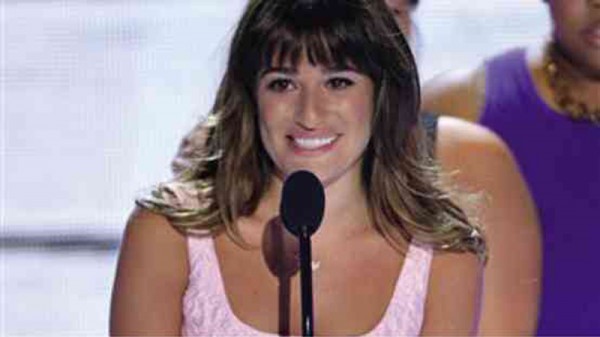The fifth season of “Glee” started telecasting last Friday, Sept. 27, on Etc., and it made sure that it kept its storytelling eventful: Jane Lynch’s character was even nastier and more vindictive than usual, planting bogus “evidence” to get the school’s principal fired, so she could replace him. This makes her more powerful on campus, so the (many) people she dislikes and hates should watch out!
Over in the big city, Lea Michele’s character has auditioned for the lead role of Fanny Brice in “Funny Girl,” but the new production’s producers feel she’s too young and untested to be entrusted with the highly coveted role.
So, what does she do about it? When they happen to dine at the restaurant where she waits on tables to make rent and food money while she waits for her elusive big break to come—she performs for them again. —Until they change their minds? Hmmm . . .
On the romantic front, the show’s resident gay lovers not only get back together again, but even contemplate getting married! To help them decide, many friends and former foes get together and whip up a big engagement “event,” naturally culminating in a big production number.
Decision
Speaking of musical numbers, what made “Glee’s” fifth season opener special was its decision to feature some early songs by the Beatles, which the series’ cast members were obviously thrilled to perform!
Despite these and other high points, however, some of the episode’s scenes felt overly reminiscent of past situations and subplots. This “been there, seen that” sense of overfamiliarity was a dampener—a direct consequence of the series’ decision to keep extending its storytelling.
True, many of the show’s cast members are new, and some graduates’ bittersweet career and personal experiences in the “real” world after high school have opened up the musical-drama series to new conflicts and more “adult” possibilities. —But, many of the show’s most central themes have already been dramatized in various ways, over and over again, so the thrill is considerably diminished.
This is not to downplay or dismiss “Glee’s” significant contributions since its inception—its revival of the musical-drama format, its honest depiction of “alternative” lifestyles, its assault on the bastions of racism, homophobia, anti-feminism and bullying, etc.
But, precisely because it’s been such an issues-engaged show, when it keeps going back to overly-familiar territory, the thrill is going, going—gone?



